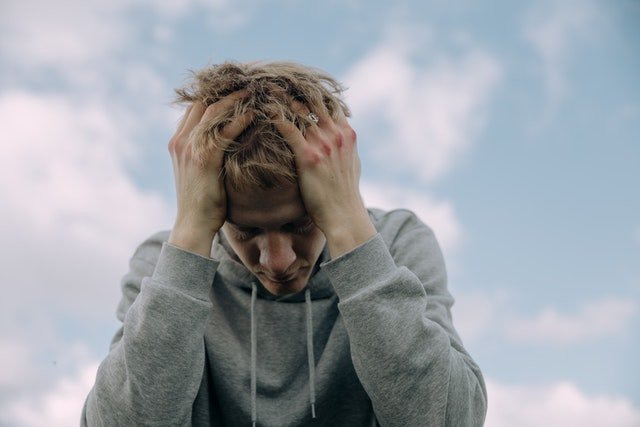Trichotillomania, commonly referred to as hair-pulling disorder, is a body-focused repetitive behavior that often goes unnoticed but affects many lives. This condition is characterized by the urge to pull out one's hair, sometimes causing noticeable hair loss. Trichotillomania can be a challenging and distressing condition, but there is hope for those who suffer from it. Drake Eastburn at Eastburn Hypnotherapy Center specializes in using hypnosis to help individuals break free from the cycle of hair-pulling and regain control over their lives.
Read MoreStudies have shown that highly sensitive people (HSPs) are more susceptible to anxiety disorders. This is largely due to the “startle” reflex, but several other factors can contribute to feelings of anxiety for them.
Read MoreWhen most people think of addiction, drugs and alcohol are often the first things to come to mind. However, food addiction is very real and can harm your mental and physical health.
Read MoreHypnosis is often touted as an effective solution for dealing with general anxiety. However, it can go far beyond that, depending on what’s fueling your fear. That includes helping you manage and even overcome your social anxiety.
Read MoreAnxiety is more common than most people think. It’s the number one mental health condition across the globe, affecting millions of people.
Read MoreHypnosis is gaining popularity in the world of mental health. It’s been used to combat everything from anxiety to addiction with great success.
Read MoreDepression is one of the most common mental health conditions in the world. However, it can impact people differently.
Read MoreThankfully, there are things you can do to overcome the power drugs and alcohol have on your life. You can beat substance abuse and find freedom once again. Let’s dive a little deeper into how you can make it happen.
Read MoreEveryone experiences stress. Even when things in your life are going well, stress is going to be there. While a little stress can actually be a good thing, too much can contribute to both mental and physical health issues.
Read MoreMost people understand the basics of depression. However, it’s much more than a condition that causes you to feel sad. As one of the most commonly diagnosed mental health conditions across the globe, it’s important to understand how depression truly affects the brain
Read MoreWe’ve all seen the stereotypes about emotional eating.
Read MoreIt’s estimated that about 50 million adults in the U.S. struggle with chronic pain. Most people understand the physical effects of chronic pain. It can wreak havoc on your life and make you wonder how severe your symptoms will be from one day to the next.
Read MoreMost people have a basic idea of what anxiety is. Those who deal with it can talk all about how their anxiety shows up both physically and emotionally. Some of the most common symptoms include a racing heart, difficulty sleeping, and intense feelings of fear.
Read MoreIt’s not uncommon to feel butterflies before you have to give a presentation or step up on stage. Maybe you even feel a little nervous in the bedroom when you’re trying to be intimate with your partner.
Read MoreSocial anxiety is nothing new. If you’ve ever experienced debilitating fear or worry over things like having to speak in a group of people you don’t know, or even going to a party, you could be struggling with it.
Read MoreThere is a myth that hypnotic suggestions only last a short time, or they will only last for 48 hours. I am amazed that there are still some hypnotists who believe this. I have heard other hypnotists say that you must get back to their office within 48 hours of your first hypnosis session, so that they can compound the suggestions before they wear off. Again, false.
Andrew Salter, in his book What is Hypnosis, quoted a piece by George Estabrooks recounting a suggestion given to soldiers during WWI that was still effective more than twenty years later. There are also examples of Milton Erickson giving suggestions that lasted more than ten years.
Read MoreThrough using the phone, FaceTime, Zoom, or Skype, we are able to work with clients around the world. We’ve been using these technologies for years to great success. However, sometimes clients are a little doubtful that hypnosis will work if they’re not actually in the same room with the hypnotherapist. How does this really work?
Read MoreWhat first got you into hypnosis?
I first started doing hypnosis in the early 70s as a path to my own personal growth. This was through The Silva Method and I took all the trainings they had to offer. I was a migraine sufferer at the time, and I learned hypnosis methods to rid myself of migraines forever. I went on to take hypnosis classes through Denver Free University
Read MorePeople with chronic pain often struggle to find the source. Doctors run MRIs, perform surgeries, sometimes going as far as to sever the nerve thought to be responsible for the pain. Yet the pain persists. How is this possible? How is it possible to feel pain in an area when there is literally no connection from that part of the body to the nervous system? The truth is that pain is much more complicated.
Read MoreIt is incredibly tempting to try to solve our issues by going for a quick-fix. Though it seems easiest to throw a band-aid on the problem and move on, this will only cause more stress in the end.
Read More




















